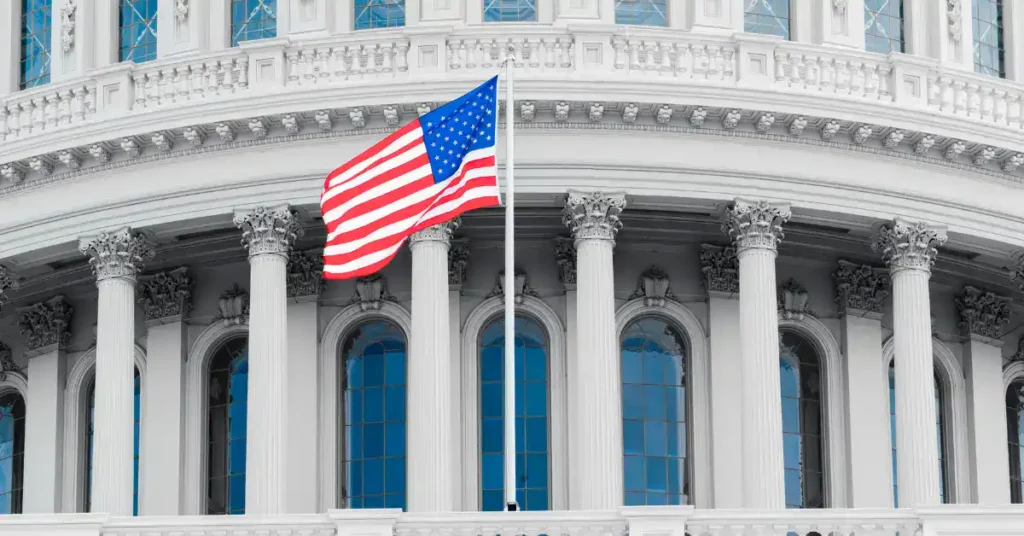What’s in the ‘Big Beautiful’ Tax Bill: An Overview

The Reconciliation Act, passed by Congress and signed into law by President Trump on July 4, 2025, contains sweeping changes to US tax policy, as well as spending shifts to social, educational, human services, and healthcare programs.
The Act, also known as the “One Big Beautiful Bill Act,” carries implications for individuals, businesses, and the broader economy. Most significantly, the Act makes permanent many provisions of the 2017 Tax Cuts and Jobs Act (TCJA) that were scheduled to expire at the end of 2025.
Of particular interest to businesses and higher earners are three high-profile provisions:
- A temporary increase in the state and local tax (SALT) deduction to $40,000, although with income limitations
- Restoration of immediate expensing of research and development (R&D) costs
- Permanent restoration of 100% bonus depreciation, effective January 20, 2025
At nearly 1,000 pages, the Act includes numerous provisions still under analysis. This article will provide a broad overview, and in the coming weeks, we will publish more detailed analyses as information becomes available. As with many tax provisions, the real value lies in understanding the details, as headline-catching items often sound promising but are limited by income or other restrictions. Therefore, making a quick decision is highly discouraged until the fine print is considered.
Individual Tax Changes
Permanent Extension of TCJA Tax Rates
The Act makes permanent the individual income tax rates enacted under the TCJA, which were initially set to expire after 2025. These include:
- A top marginal rate of 37% (instead of reverting to 39.6%)
- Retention of the lower brackets for middle- and lower-income earners
Standard Deduction and Personal Exemptions
- The higher standard deduction established by the TCJA is made permanent and adjusted for inflation on an annual basis.
- The amount for tax year 2025 is set at $31,500 for joint filers, $23,625 for heads of household, and $15,750 for single taxpayers and married taxpayers filing separately.
- A new $6,000 bonus deduction is added for seniors aged 65 and above during 2025 through 2028, with income phaseouts beginning with modified adjusted gross income exceeding $150,000 for joint filers and $75,000 for others.
- The bill permanently eliminates personal exemptions.
SALT Deduction Cap Adjustment
- The TCJA’s $10,000 SALT deductions were one of its most controversial provisions, and lawmakers from high-tax states quickly began a years-long effort to undo the damage to their constituents. The Act provides temporary relief. Under the Act, SALT deduction cap is temporarily raised from $10,000 to $40,000 for 2025, with inflation adjustments through 2029. The cap reverts to $10,000 in 2030.
- A phase-down applies for taxpayers with MAGI over $500,000, reducing the deduction by 30% of the excess income while maintaining the $10,000 SALT limit.
Tax Relief for Tip Income and Overtime Income
- Contrary to widespread belief, the Act does not exclude tip income — or any portion of it — from taxation. The Act provides a new tax deduction that workers can claim against their tip income. Taxpayers do not need to itemize to take this deduction, but a Social Security number is required to claim it. The deduction is capped at $25,000 and begins to phase out at modified adjusted gross incomes over $150,000 ($300,000 for joint filers).
- The Act also extends the employer credit for Social Security taxes on cash tips to the beauty service industry. Previously, it applied only to the food and beverage industry.
- Similar to the deduction for tip income, under the Act, taxpayers may claim a deduction against overtime pay without itemizing, but they must provide a Social Security number. The deduction is capped at $12,500 and begins to phase out at modified adjusted gross incomes over $100,000 ($200,000 for joint filers).
- The deductions for both tip income and overtime pay are set to expire after 2028.
Car Loan Interest Deduction
- A new deduction of up to $10,000 of interest paid on certain car loans during 2025 through 2028
- The automobile must be US assembled, and there is an income limitation phase-down
Child Tax Credit Expansion
- The Child Tax Credit is increased to $2,200, indexed annually for inflation. The refundable portion of the credit is limited to $1,400.
Alternative Minimum Tax (AMT)
- The AMT exemption levels are made permanent at TCJA levels. However, the phaseout thresholds revert to 2018 levels, potentially subjecting more high-income earners to the AMT.
Estate and Gift Tax
- The estate and gift tax exemption is permanently increased to $15 million, indexed for inflation starting in 2026. Under TCJA, the exclusion had reached $13.99 million but was set to revert to 2017 levels after 2025, which would have effectively cut it in half. Many taxpayers scrambled in the past year to revise their estate plans in preparation for the lower exclusion. Those who procrastinated can heave a sigh of relief, but should probably review their estate plans anyway.
Business Tax Changes
Section 199A Pass-Through Deduction
- The bill makes permanent the 20% deduction for qualified business income (QBI) under Section 199A, benefiting sole proprietors, partnerships, and S corporations. Under the TCJA, this deduction was scheduled to expire at the end of 2025.
Bonus Depreciation
- One of the most significant business provisions of the Act is the permanent restoration of 100% bonus depreciation, effective January 20, 2025. This allows businesses to immediately deduct the full cost of qualifying capital investments such as machinery, equipment, and certain software in the year the asset is placed in service.
- The TCJA provided 100% bonus depreciation, with a step-down of 20% per year starting in 2023 and expiring in 2027. With restoration of 100% bonus depreciation retroactive to January 19, 2025, businesses that have already made capital expenditures in 2025 with the expectation of 40% bonus depreciation may reap an additional benefit.
Interest Deductibility
- The bill restores the EBITDA-based limitation on the net interest deduction, replacing the more restrictive EBIT-based rule that had phased in under the TCJA. This change, effective December 31, 2024, allows businesses to deduct more interest, especially those with high depreciation and amortization expenses.
Corporate Foreign Income
- The bill modifies the Global Intangible Low-Taxed Income (GILTI) regime to reduce the effective tax rate on foreign earnings and simplify compliance. It also repeals the Base Erosion and Anti-Abuse Tax (BEAT) and replaces it with a more targeted anti-avoidance rule.
Research and Development (R&D) Expensing
Full Expensing Restored
- Prior to 2022, a direct expense election for R&D costs was available; however, the TCJA changed this requirement, mandating that these expenses be amortized over five years (or 15 years for foreign R&D). The Act permanently restores immediate expensing for domestic R&D costs incurred on or after January 1, 2025.
- Businesses with remaining unamortized research and development costs may benefit from accelerated deduction of these costs.
- Additionally, small businesses with average annual gross receipts of $31 million or less may claim the deduction retroactively to 2022.
These provisions aim to encourage innovation, repatriate intellectual property, and boost US competitiveness in high-tech sectors.
Clean Energy and Other Provisions
Rollback of Clean Energy Credits
- The bill terminates or phases out many clean energy tax credits introduced under the Inflation Reduction Act of 2022, including:
- Electric vehicle (EV) purchase credits
- Residential solar & energy efficient improvements credits
- Production and investment tax credits for wind and solar energy
We’re here to help
The Act is a major piece of tax policy legislation, with long-term implications for taxpayers, businesses, and the federal budget.
We will provide further analysis of the Act in the days and weeks ahead, specifically focusing on the impact its provisions will have on our clients’ businesses, as well as individual tax concerns.
In the meantime, if you have questions or concerns about the Act’s impact on your business or personal tax situation, contact your JLK Rosenberger team member or click here to contact us. We look forward to speaking with you.








